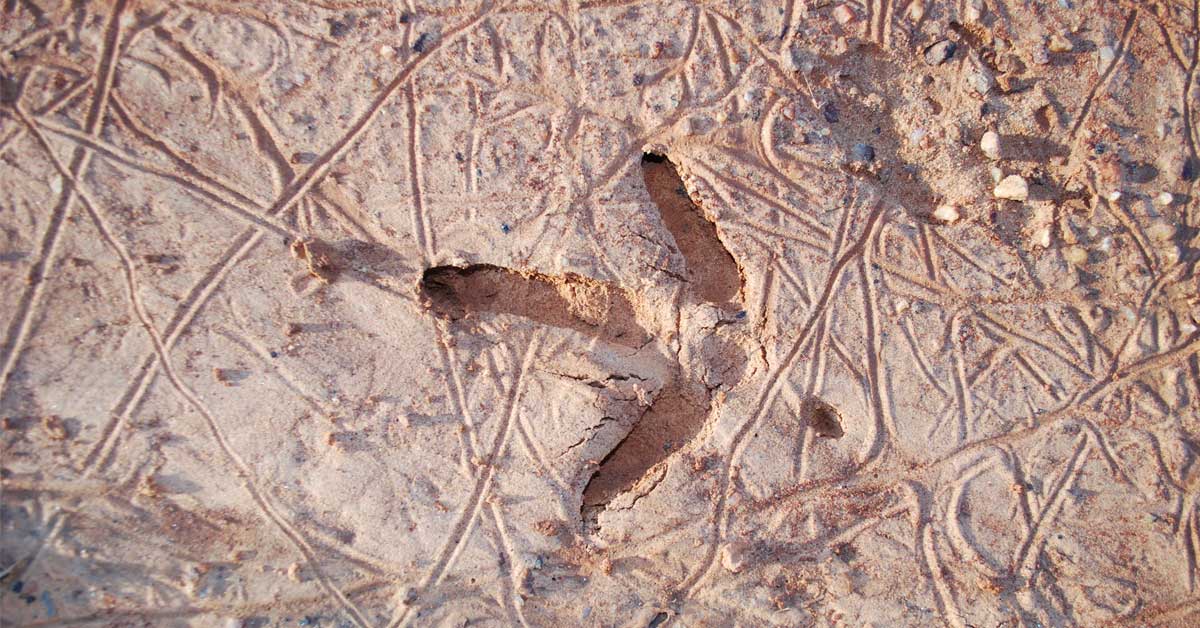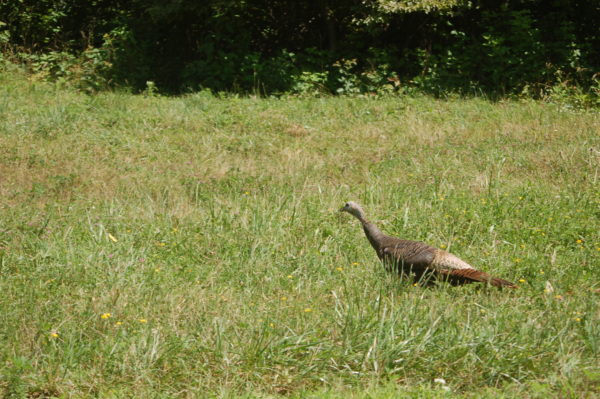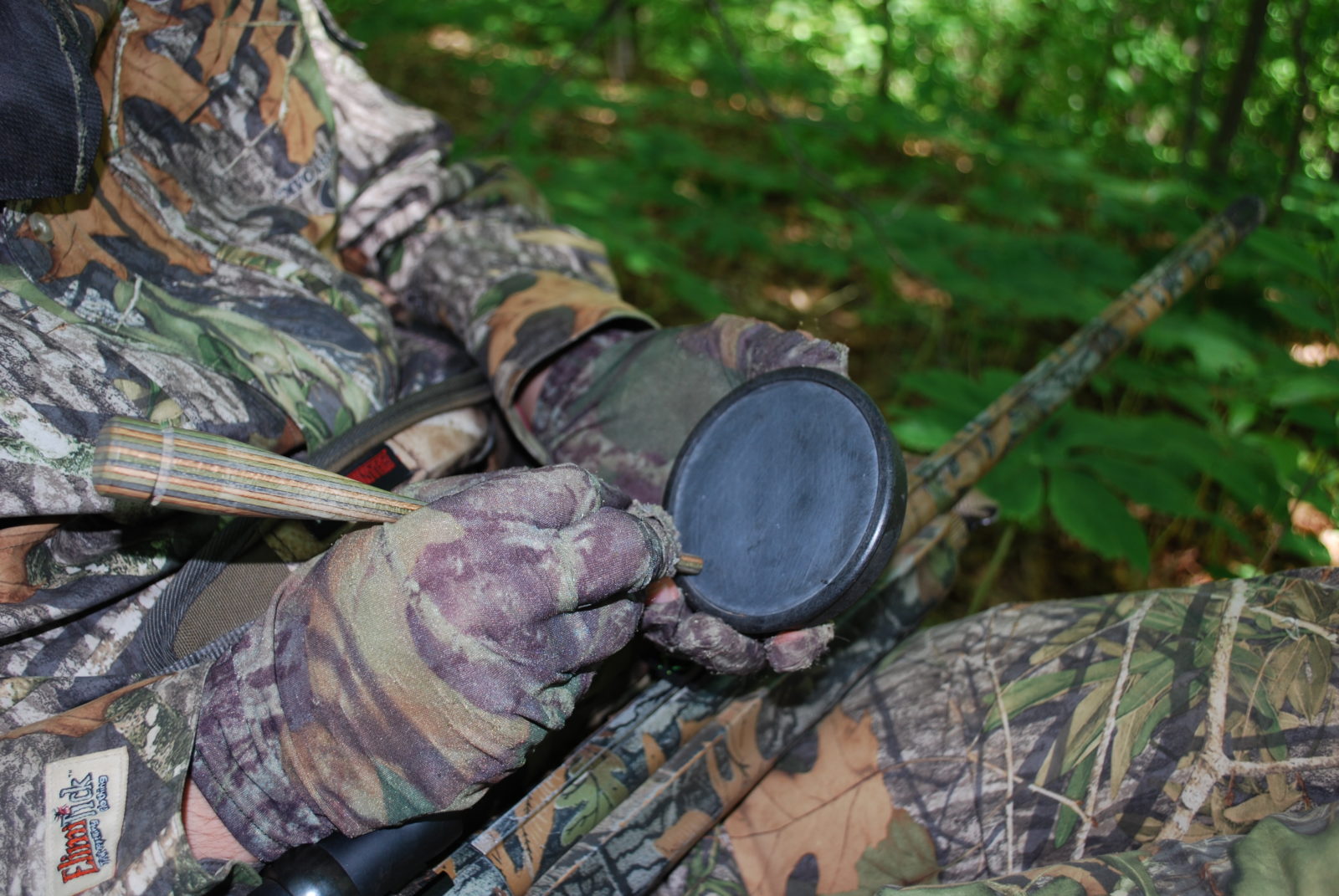
Fresh turkey tracks are almost as good a sign as hearing birds.
By Bruce Ingram
Photos by Bruce Ingram
With Virginia’s Youth and Apprentice gobbler season set for the weekend of April 6 and 7, and the regular season slated to begin on April 13, it’s time to tap the knowledge of Gary Norman, the DGIF’s forest game bird biologist.
“It’s hard to say anything for sure regarding turkeys,” Norman said. “In general, though, hunters can gain information about such things as gobbling and harvest per week, gobbling intensity, and gobbling by region from our Spring Gobbler Survey Report.”

Turkey hens are often bred before the season begins, and their presence or absence has a lot to do with gobbler behavior.
Again, generally, Norman says gobbling often peaks in late April to early May, but sometimes that peak can come earlier. Many things can impact the peak of gobbling and can include such phenomena as weather, hunting pressure, and previous hatches. For example, two-year-old toms often gobble the most aggressively, and a poor hatch two years before a season can result in less tom talk in a given year.
One of the reasons, Norman continues, that gobbling often increases in late April is because many hens are incubating eggs by then. Many hens are bred before the season even begins, and they slowly drop out of the breeding contingent as April progresses. These disappearing hens are what often can stimulate longbeards to gobble more.
Of course, that gobbling intensity doesn’t necessarily result in the toms being easier to harvest says Norman. The presence of jennies (one-year-old hens) can insure that the males don’t have to look far for romance. Jennies often don’t nest their first year, and they can remain with the gobblers well into May, frustrating hunters around the state.

A slate is an excellent caller to master for turkey hunting success.
So with all the vagaries of gobbling, weather, hen presence or absence, and turkey behavior, what’s the best advice Gary Norman can offer for the coming season?
“Don’t walk away from a tom that’s quit gobbling,” he says. “He may temporarily be with hens, but sooner or later many of them will go off to nest or lay an egg. And sooner or later, that gobbler will often come looking for the ‘hen’ he heard earlier. Three of the most important words in turkey hunting are patience, patience, patience.”
I have been participating in Virginia’s Spring Gobbler Survey Report for some 25 years and look forward to reading its data – and comparing it with my own experiences. To participate, contact Norman at [email protected].


